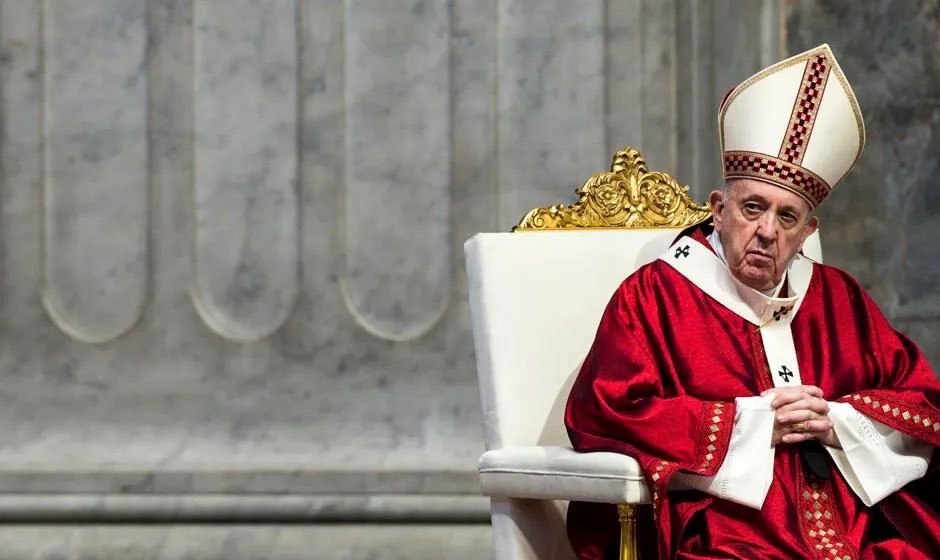Pope Francis’ Vision for a More Inclusive Capitalism
In light of the widening global wealth gap between the ultra-wealthy and the majority of society, Pope Francis has issued a challenge to both corporate executives and public sector leaders. He urges them to embrace a more inclusive, fair, and transparent economic system that can effectively tackle the pressing challenges faced by humanity and the planet.
According to Pope Francis, “The world is rich, yet poverty continues to afflict a growing number of people.” The pope emphasizes the urgent need to address the plight of hundreds of millions of individuals who lack basic necessities such as food, housing, healthcare, education, electricity, and clean water.
The Council for Inclusive Capitalism: A Historic Partnership
In response to the pope’s call, influential business and public sector leaders have joined forces with the Vatican. Together, they have established the Council for Inclusive Capitalism, a global movement aimed at addressing the economic and environmental needs of the planet and its inhabitants. The council boasts an impressive collective presence, with over $10.5 trillion in assets under management, companies valued at more than $2.1 trillion, and a workforce of 200 million spread across 163 countries.
It is important to note that these wealthy executives do not oppose capitalism; in fact, they acknowledge its positive impact in lifting billions of people out of poverty. However, they also recognize the system’s shortcomings, which have led to the marginalization of certain individuals and taken a toll on the environment. Therefore, the partnership seeks to restore a moral balance within capitalism.
The Guardians: Leaders Committed to Inclusive Capitalism
The council, also known as the “Guardians,” consists of top executives from leading corporations who have pledged to take decisive actions in fostering inclusive capitalism. The Guardians hold themselves accountable by committing to a comprehensive list of initiatives encompassing environmental, social, and governance matters. Within their respective companies, they plan to prioritize hiring and promoting women, increasing diversity, adopting clean energy by utilizing 100% renewable electricity, reducing greenhouse gas emissions, promoting water reuse and recycling, and undertaking other related initiatives.
Examples of Business Leaders Committed to Inclusive Capitalism
The list of Guardians continues to grow steadily, with numerous prominent business leaders joining this mission. Here are some noteworthy examples:
- Ajay Banga, President and CEO of Mastercard
- Oliver Bäte, Chairman of the Board of Management of Allianz SE
- Marc Benioff, Chair, CEO, and Founder of Salesforce
- Edward Breen, Executive Chairman of Dupont
- Lady Lynn Forester de Rothschild, Founder and Managing Partner of Inclusive Capital Partners
- Kenneth Frazier, Chairman of the Board and CEO of Merck
- Alex Gorsky, Chairman of the Board and CEO of Johnson & Johnson
- Alfred Kelly, Chairman and CEO of Visa
- William Lauder, Executive Chairman of Estée Lauder
- Bernard Looney, CEO of BP
- Brian Moynihan, Chairman of the Board and CEO of Bank of America
- Ronald P. O’Hanley, President and CEO of State Street Corporation
- Rajiv Shah, President of the Rockefeller Foundation
Examining the Initiative’s Impact and Potential Challenges
While there are reasons to be both hopeful and skeptical of this initiative, the corporate commitments should not be disregarded. However, it is worth noting that some of these pledges are not entirely new, as companies like BP have previously declared their commitment to achieving net-zero carbon emissions by 2050. Despite the public nature of these pledges, there is currently limited accountability, aside from the risk of disappointing the pope.
Addressing Wealth Inequality: A Call for Personal Examples
Although it is commendable that these individuals strive to make the world a better place, an irony cannot be ignored. The same leaders who advocate for an end to wealth and income inequality are themselves extraordinarily wealthy. Naturally, these leaders appreciate the benefits of capitalism, as it has greatly contributed to their own wealth accumulation.
For instance, according to Forbes, Marc Benioff, the CEO of Salesforce, possesses a net worth of nearly $90 billion. William Lauder, the executive chairman of Estée Lauder, boasts a net worth of $3.5 billion. Moreover, Lady Lynn Forester de Rothschild, founder and managing partner of Inclusive Capital Partners, is not only wealthy in her own right but also married to Sir Evelyn De Rothschild, an esteemed figure from one of the world’s wealthiest family dynasties, with an estimated net worth of $20 billion.
Similarly, the CEOs mentioned earlier, such as Ajay Banga and Brian Moynihan, have amassed significant personal fortunes. While their compensation packages are substantial, their wealth extends far beyond salary figures, including stock ownership and other assets.
Leading by Example: A Personal Commitment
To truly address wealth inequality, the wealthy elites could begin by setting an example in their own lives. Rather than relying solely on corporate actions, these executives have the means to make personal financial contributions without seeking tax benefits. While corporate initiatives may be supported indirectly by shareholders, the personal generosity of these leaders would carry significant weight.
Moreover, these CEOs possess the power to improve the lives of their employees directly. They can willingly accept reduced compensation, forego stock options and excessive bonuses, and redirect those resources toward enhancing employee benefits. By offering employees equity through stock options and providing improved health insurance, additional vacation days, flexible work schedules, pensions, mental health resources, and extended parental leave, the titans of industry can lead the way towards a fairer society.
The Power of Peer Pressure: Influencing Industry Leaders
As Guardians of inclusive capitalism, these business leaders can exert peer pressure on their fellow CEOs across various industries. They can encourage figures like Jeff Bezos of Amazon, Mark Zuckerberg of Facebook, Tim Cook of Apple, Sundar Pichai of Google, and others to consider redistributing their accumulated fortunes amassed during the Covid-19 pandemic to support this initiative. Such collective action would undoubtedly make a significant impact on addressing societal challenges.
The Risk of Virtue Signaling: A Critical Outlook
While this partnership between the council and business leaders holds promise, there remains a concern that it may serve primarily as a public relations opportunity for these executives. They may revel in the positive media attention, projecting an image of care and benevolence. To assess the actual progress made, a follow-up report will be provided in the coming year.









